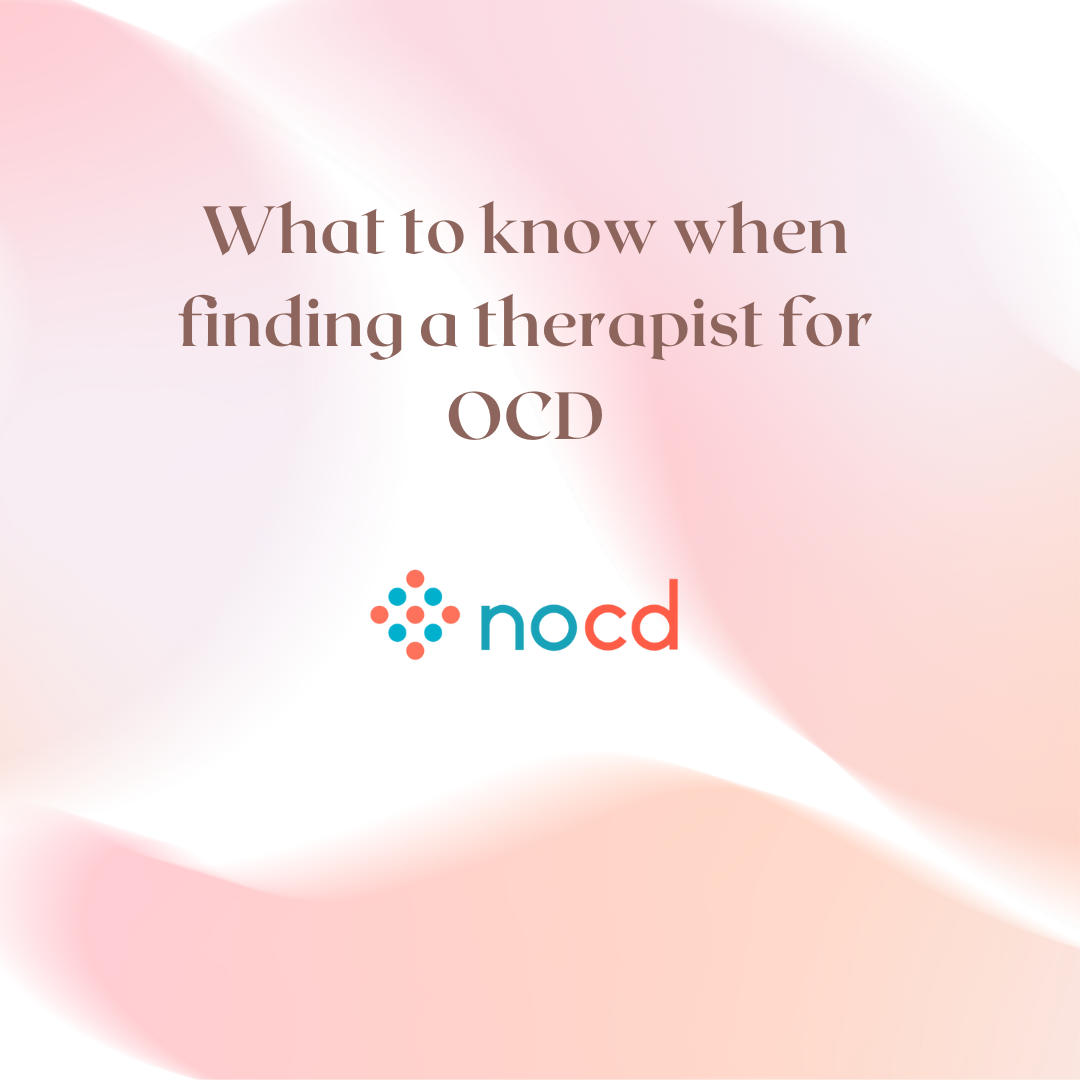A|B|C|D|E|F|G|H|I|L|M|O|P|R|S|T|
The world of insurance can be overwhelming and difficult to understand. Here is a glossary of insurance terms that you may encounter when interacting with your insurance company and policy. Some of these terms may be used or defined differently by other companies or entities.
Adjudication
Adjudication is the process of a healthcare insurance claim being received and processed against the plan benefits of the patient.
Allowable Charge
The Allowable Charge is the maximum charge insurance will accept for a covered service code.
Appeal
An Appeal is when an insurance charge is disputed by the patient or doctor to get a service covered for medical necessity.
Arbitration
Arbitration is a process of resolving disputes outside the courts. The two parties will have a neutral third party, called an arbitrator, to resolve the dispute.
Authorization
An Authorization is when insurance allows a medical treatment, healthcare service, or prescription drug that is deemed medically necessary. Generally, an authorization number is given, along with the time frame of the authorization. (See Prior Authorization)
Beneficiary
A Beneficiary is the person that receives healthcare benefits. The insured is the beneficiary along with anyone else who is enrolled in coverage by the same plan (dependents).
Benefit Reset
Benefit reset is when benefits start anew after ending their twelve month period. When benefits reset the patient has not met their deductible and must pay out-of-pocket as the accumulation is at zero (0).
Benefit Year
Benefit Year is the 12 month period that healthcare coverage is effective. Many policies begin coverage on January 1st and end December 31st. Other plans start on another date for the twelve month period. During this time the deductible will accumulate, as well as the out-of-pocket maximum. At the beginning of the benefit year all benefits are reset.
Claim
A Claim form is used to officially request a policyholder’s insurance for coverage. Once received by insurance, they will process the claim against the policy for determination.
C.O.B.R.A. Insurance (Consolidated Omnibus Budget Reconciliation Act)
C.O.B.R.A insurance (Consolidated Omnibus Budget Reconciliation Act) allows former employees who lose their healthcare insurance the opportunity to maintain the same group healthcare insurance for a limited time. C.O.B.R.A. insurance can be beneficial to those with pre-existing conditions that may not be insurable with an individual insurance plan.
Combined Deductible Accumulations
A Combined Deductible Accumulation is a health plan with a deductible. Claims are processed separately as in-network or out-of-network. In-network claims accumulate toward the patient’s in-network deductible separately. The out-of-network claims accumulate towards the out-of-network deductible separately. With a combined deductible they accumulate together instead of individually.
Coordination of Benefits (COB)
Coordination of Benefits (COB) is when a patient holds two insurance policies. In this case, the patient needs to call each insurance company to identify which is the primary and which is the secondary insurance. This is the order in which insurance pays a claim. For example, a patient goes to the doctor and has a $35 copayment. The patient would have the claim submitted to their primary insurance for the majority of the payment. After the primary claim is processed, the secondary claim will be submitted for the $35 copayment.
Co-payment
The Co-payment is a fixed amount that a patient pays out-of-pocket. Confirm your healthcare benefits for this information.
Would you like to try therapy? BetterHelp has over 20,000 licensed therapists who provide convenient and affordable online therapy. BetterHelp starts at $65 per week. Take a Free Online Assessment and get matched with the right therapist for you.
Co-insurance
Co-insurance typically is the amount a patient will pay out-of-pocket after the patient has reached their deductible. The co-insurance is normally represented by a percentage, 20% for example, of a service.(Confirm your healthcare benefits for this information).
Current Procedural Terminology (CPT/Service Code)
Current Procedural Terminology (CPT codes) represent each task performed for service by a medical professional. This uniformity allows services to be understood by all insurance companies and medical professionals across the board. Each service code is assigned a rate for billing purposes.
Credentialed/In-network/Paneled
Credentialed/In-network/Paneled providers have been reviewed and have contractual obligations with an insurance company. In-network providers in the contract have pre-negotiated rates with the insurance company.
Date of Service (DOS)
Date of Service (DOS) refers to the day that services are rendered by a medical professional for a patient.
Deductible
The Deductible is the amount of money that the patient will pay out-of-pocket before their healthcare insurance starts to pay. Confirm your healthcare benefits for this information.
Dependent
A Dependent is a member of the family of the subscriber that is also enrolled in the plan to receive eligible healthcare insurance.
Diagnostic Code
Diagnosis Code is a system used to identify diseases, disorders, illnesses, injuries, and symptoms by a licensed healthcare provider. The code is a written description needed on a claim form.
Employee Assistance Program (EAP)
Employee Assistance Program (EAP) is a worked-based program designed to assist employees in resolving personal problems. These problems can be marital, financial, or emotional problems, family issues, or substance or alcohol use that may adversely affect their employee status. The employer generally pays 100% for the limited sessions for the employee or dependent family member
Effective Date
Effective Date is the start date for insurance to begin.
Exclusion or Limitation
Exclusions or Limitations are included in many insurance policies, as they will limit or not cover certain illnesses, injuries, treatments, and procedures.
Explanation of Benefits (EOB)
Explanation of Benefits (EOB) is a statement from insurance providing the details of how a claim was processed. The EOB includes the service code and description and the date of service, along with the service location and the rendering provider of the service.
Finalized Claim
Finalized Claims have been reviewed against the patient’s policy with final determination. Final determination can issue payment or the “allowed” fees to be applied to the deductible.
Flexible Spending Account (FSA)
A Flexible Spending Account (FSA) is a pre-taxable savings account that puts money aside for qualified medical expenses. Many individuals have a debit card to pay for their medical visits: doctor appointments, prescriptions, surgeries, and therapy sessions. However, the funds must be used by the end of the calendar year.
Group
A Group in healthcare insurance is a collection of members or employees. An employer uses their size to negotiate the best rate with an insurance company for their individual group.
Health Savings Account (HSA)
A Health Savings Account (HSA) is a pre-taxable savings account that puts money aside for qualified medical expenses. Many individuals have a debit card to pay for their medical visits: doctors appointments, prescriptions, surgeries, and therapy sessions.
Online Psychiatry and Medication Management Covered By Insurance Talkiatry can match you with a real psychiatrist who takes your insurance and is seeing new patients. They’re in-network with major insurers and offer medication management. Get started with a short online assessment
Health Insurance Portability and Accountability Act (HIPAA)
Health Insurance Portability and Accountability Act (HIPAA) is the law that protects the access and disclosure of personal health information (PHI) without the consent or knowledge of the patient.
Health Maintenance Organization (HMO)
A Health Maintenance Organization (HMO) plan is a healthcare insurance plan that limits the members to see providers within the insurers’ networks. Many HMOs have no out-of-network coverage.
Health Insurance Card
A Health Insurance Card is proof of health insurance, as it provides the name(s) of the insured, member identification, group number, insurance company, member service contact phone number, and contact information for providers.
Individual Health Insurance
Individual Health Insurance is healthcare insurance that individuals obtain to limit their cost for healthcare expenses.
In-Network/Paneled
A In-Network/Paneled provider is a healthcare professional who has been reviewed and has a contract or terms of fees with an individual insurance company. The provider is credentialed or paneled with the insurance company.
Inpatient
Inpatient care for the patient that requires admission to a hospital.
Insurance Company/Payer
An Insurance Company/Payer is in the business of selling healthcare insurance for individuals to offset the cost of healthcare. The largest health insurance companies are Aetna, Blue Cross, Cigna, Humana, Optum.
Insurance Plan
An Insurance Plan (or healthcare plan) is insurance used to protect an individual from the high cost of healthcare in the form of a private insurer or a government insurer
Intensive Outpatient Program (IOP)
An Intensive Outpatient Program is treatment for patients who return home after each session. IOPs can be used to treat addiction, depression, eating disorders, or other issues that do not require detoxification or inpatient supervision.
Licensed Social Worker (LCSW)
A Licensed Social Worker is a social worker who has obtained a master’s degree in social work, as well as a license for social work.They can help to coordinate treatment for mental illness and for personal issues such as emotional health or helping to find resources for someone to relocate out of a dangerous living situation.
Managed Care Plans
Managed Care Plans generally offer health insurance plans to their members, called policyholders. The incentive for plan members to use credentialed (in-network) providers is through agreed-upon lower rates. Such plans include HMOs, PPOs and POSs.
Medicaid
Medicaid is managed by each state for low income individuals, pregnant women, the elderly, and those with disabilities.
Medical Necessary
Medical Necessary or medical necessity is the term used by an insurance company to justify if a medical treatment, healthcare service, or prescription drug is reasonable and necessary. This is the term used to approve or reject a procedure or treatment.
Medicare
Medicare is a federal health program for those 65 or older or those who qualify with disabilities. Medicare is divided into separate parts: Medicare Part A is hospital coverage, Medicare Part B is medical coverage, Medical Part C provides additional medical coverage, and Medicare Part D is prescription drug coverage.
Member Services
Member Services is located on the back of the insurance card with the phone number for members/policyholders to call to obtain benefits: copayment, coinsurance, deductible, deductible accumulations, and out-of-pocket maximum. You can also call member services to resolve any questions or issues regarding insurance coverage.
Open Enrollment
Open Enrollment is a period of time when an employee of a company may select their health insurance for the next benefit period for oneself, and dependents (spouse and children), if applicable.
Out-of-Network Provider
Out-of-Network Providers have not been reviewed and do not have a contract or terms of fees with an individual insurance company.
Out-of-Pocket
Out-of-Pocket is when a patient pays for medical expenses directly, by various means: checking account, FSA, or HSA.
Out-of-Pocket Maximum
Out-of-Pocket-Maximum is the maximum that a patient will pay out-of-pocket. After that, insurance will pay 100% of the medical expenses. Call “Member Services” on the back of the healthcare card for this information.
Personal Healthcare Information (PHI)
PHI refers to a patient’s personal health information, such as name, date of birth, medical history, and medical or mental condition, along with other data collected by a healthcare professional.
Point of Service Plan (POS)
Point of Service plan (POS) is a type of healthcare insurance plan that has characteristics of a HMO or PPO plan.
Preferred Provider Organization plan (PPO)
Preferred Provider Organization plan (PPO) allows insurance members to visit in-network providers without a prior-authorization or referral. A patient may see out-of-network providers at a higher cost.
Pre-Authorization/Pre-Certification/Pre-Approval
Insurance sometimes requires a review of the medical necessity of a medical treatment, healthcare service, or prescription drug before the service is rendered. Generally, an authorization number is given, along with the time frame of the authorization.
Pre-Existing Condition
A prior health condition that was previously diagnosed before joining this insurance plan.
Premium
An insurance premium is the amount of money paid to insurance for coverage. The majority of healthcare premiums are paid through employer-sponsored plans with payroll deductions.
Prior Authorization
Prior to the medical treatment, healthcare service, or prescription drug, an authorization is granted based on medical necessity. Generally, an authorization number is given, along with the time frame of the authorization.
Provider
A medical provider is a healthcare professional who has been authorized by their state to practice medicine. A medical provider includes mental health professionals, such as licensed social worker, licensed psychologist, psychiatrist, and psychologist.
Psychiatrist
Psychiatrists are medical doctors who treat and evaluate patients for behavioral and mental health. They have the ability to prescribe medication.
Psychologist
Psychologists have advanced degrees and training in the treatment and evaluation in behavioral/mental health. With their advanced education they may earn the title of PhD or PsyD.
Referral
An insurance Referral is written permission from the primary doctor given to see a specialist. Some insurance policies require a referral prior to seeing a specialist.
Secondary Insurance
Secondary Insurance is when a patient has two insurances. The owner of the insurance must call each insurance and identify which is primary and secondary. Secondary insurance pays after the primary insurance is Finalized (see Coordination of Benefits).
Self-Insured Plan
A Self-Insured plan is a healthcare plan in which the employer assumes the majority of the cost for their employees. Self-funded plans may contract with insurance carriers to administer the plan benefits, such as claim processing and other administrative services when they pay the claims.
Specialist
A Specialist is a doctor or healthcare professional with advanced education and training in medicine. Examples of medical specialists include: cardiologist, dermatologist, endocrinologist, gastroenterologist, neurologist, oncologist, and psychiatrist.
Superbill
A Superbill is a receipt for a session with an out-of-network counselor allowing the patient to submit a claim to their health insurance.
Telemedicine
Telemedicine is the use of technology, often virtual, for a patient to communicate with a medical professional for diagnosis or treatment.
Third-Party Insurer
Third-Party Insurers are common for mental health insurance coverage. They are used to keep the cost of healthcare lower by the insurance company and the employer. This insurer is different from the name on the front of the healthcare insurance card. Their phone number can often be found on the back of the insurance card. When claims are forwarded to the third-party insurer the provider may be subject to their network status, not the healthcare company on the card.
Timely Filing
Timely filing is the time limit that an insurance company allows from the date of service for a claim to be submitted. For example, a payer may have a 90-day window for timely filing.
For More Information, Call Your Health Insurance Company
For clarity on your healthcare or mental healthcare insurance benefits, contact your insurance company directly by calling the number on the back of the healthcare insurance card. On the call they may explain your healthcare benefits, along with a review of any past claims processed against the policy. For a discussion about a future procedure or treatment, obtain the CPT/service code and call the healthcare insurance company to see how a future procedure or treatment may be treated when received by insurance.
To help our readers take the next step in their mental health journey, Choosing Therapy has partnered with leaders in mental health and wellness. Choosing Therapy is compensated for marketing by the companies included below. Online Therapy BetterHelp Get support and guidance from a licensed therapist. BetterHelp has over 20,000 therapists, who provide convenient and affordable online therapy. Complete a brief questionnaire and get matched with the right therapist for you. Get Started Psychiatry, with you in mind Talkiatry Our Psychiatrists Can Diagnose Your Condition, Prescribe Medication, And Monitor Your Progress. Most psychiatry visits cost patients $30 or less* Free Assessment Drinking Moderation Sunnyside Want to drink less? Sunnyside helps you ease into mindful drinking at your own pace. Think lifestyle change, not a fad diet. Develop new daily routines, so you maintain your new habits for life. Take a 3 Minute Quiz Relationship Help OurRelationship (Free Couples Course) OurRelationship has been proven to help couples improve communication, intimacy, and trust. 94% would recommend it to a friend. Get Started Mental Health Support Group App Circles Anytime, anonymous, and free. Never feel alone during life’s greatest challenges. Drop-in to live conversations and share thoughts, ask questions, or learn from others on the same journey. Join Circles Now Free Prescription Discount Card Optum Perks Save up to 80% on most prescriptions. Optum Perks provides discounts at over 64,000 pharmacies nationwide. No memberships or costs to you, ever. It’s really that easy. Get your card and start saving. Get the discount card! *Includes copayment, deductible, coinsurance, and $0 Visits. Excludes no shows.Additional Resources
Best Online Therapy Services There are a number of factors to consider when trying to determine which online therapy platform is going to be the best fit for you. It’s important to be mindful of what each platform costs, the services they provide you with, their providers’ training and level of expertise, and several other important criteria.
What is Exposure & Response Prevention Therapy? With so much information out there regarding providers and treatment options for obsessive compulsive disorder, it can be hard to know exactly where to start—especially when you have to consider everything from the type of provider to the different treatment methods, as well as how you’ll fit it into your busy schedule.





